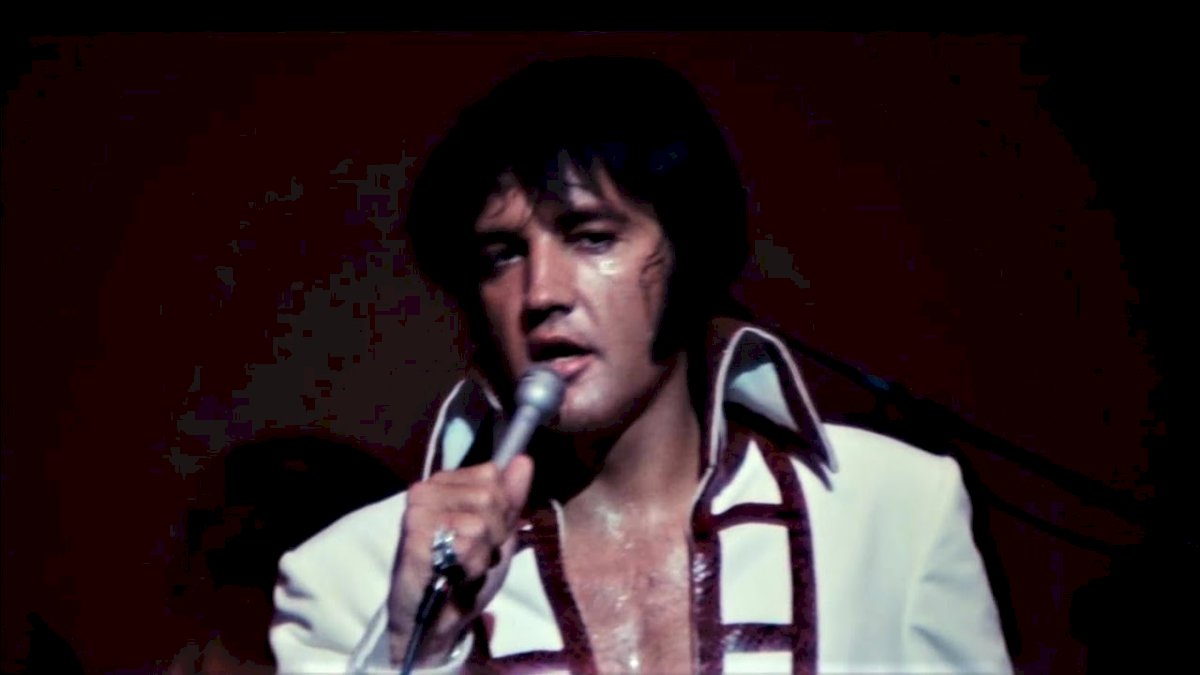As the “King” of American pop culture in the mid-20th century, Elvis embodied so many of his country’s contradictions. Revivalist of the “love and theft” of black American music and performance; humble, small town mama’s boy and dutiful soldier who built a cult of modern celebrity and a garish temple to conspicuous excess; self-appointed crusader who railed against “the drug culture” while his “legal” addiction to opiates and amphetamines laid waste to his career and health.

Maybe in these conflicts between humility and fame-seeking, all-American wholesomeness and transgressive seduction, playacting lawlessness and moralizing law and order, his legions of fans saw their own split selves. His hip-shaking confidence seemed particularly suited to both inflaming and soothing anxieties and safely channeling pent-up passions. Certain inconsistencies in his persona did not seem to trouble him overmuch.
But he was not a well man in the last several years of his short life and his tenure in the glittering faux-palaces of Las Vegas dramatically hastened the decline. While the reality of Elvis in Vegas was tacky and sad, the mythos of Elvis in Vegas made it “cool for fading superstar performers to find a second (or even third) act of their career in Vegas,” writes Mike Sager at Billboard. “Elvis paved the way for the likes of Britney Spears,” whose big American rise and fall resembles his in many ways.

Elvis’ own attempt at a third (or fourth) act is predictably tragic. Exploitative manager Colonel Tom Parker pushed him out on tour in 1977, notes Andy Greene at Rolling Stone, “despite his horrid shape.” Parker “arranged a camera crew to film the June 19th show in Omaha” in order to “get more product in to the stores”—perhaps sensing that Presley did not have much further to go. The cameras kept rolling in stops throughout the Midwest.
He was an absolute mess. He was only 42, but years of prescription drug abuse and horrifying dietary habits had left him bloated, depressed and near death. He had an enlarged heart, an enlarged intestine, hypertension and incredibly painful bowel problems. He was barely sleeping and should have probably been in the hospital, but he was still a huge draw on the concert circuit and the money was too good to turn down.

It is ugly to dwell on this period, except that somehow those final concerts produced the extraordinarily poignant footage of “Unchained Melody” at the top in Rapid City, South Dakota. “Without a doubt,” writes Greene, “it’s the last great moment of his career.” He digs deep, his voice is clear and strong. The jarring contrast between how good he sounds and how terrible he looks underlines and bolds the lines—“time can do so much…”
At the last tour stop in Indianapolis, he barely pulled off a rendition of “Are You Lonesome Tonight,” above. The song starts off really strong but soon devolves into Elvis muttering gibberish, sweating, and giggling to himself. This is hard to watch and it’s no wonder the tour footage, aired once on CBS, “has yet to resurface in any official capacity. This isn’t the Elvis that his estate wants the fans to remember.” Surely those fans themselves prefer the kitschy fantasy. Less than two months later, he was gone.



